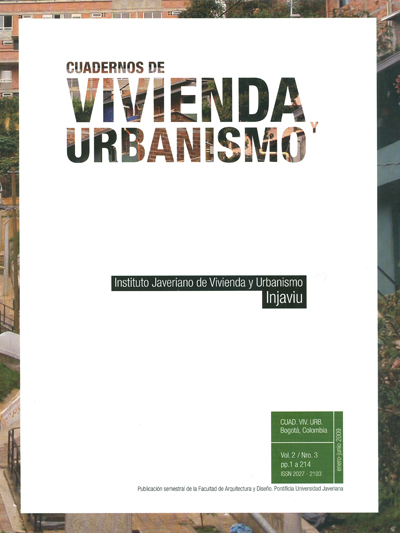Abstract
At academic level, there is a constant interest in evaluating the epistemological constructs of the human habitat. One concept that contributes to this construction is the term "inhabiting". This article is divided into three parts. The first provides a theoretical and conceptual framework for the concept of dwelling. In the second part, these contributions are contrasted with dwelling in tenement houses in the Niquitao sector of the city of Medellin, Colombia. The third part evaluates some of the proposals made by the municipality to solve the underlying problems that make tenement houses a growing phenomenon. In this process, an effort was made to understand, from a different perspective, the nature of inhabiting and particularly the "micro-territories" of tenements: from corners to different environments that reveal a clear change in forms of inhabiting. Given the importance of this research, a continued and interdisciplinary debate about the concept of inhabiting is proposed.
This journal is registered under a Creative Commons Attribution 4.0 International Public License. Thus, this work may be reproduced, distributed, and publicly shared in digital format, as long as the names of the authors and Pontificia Universidad Javeriana are acknowledged. Others are allowed to quote, adapt, transform, auto-archive, republish, and create based on this material, for any purpose (even commercial ones), provided the authorship is duly acknowledged, a link to the original work is provided, and it is specified if changes have been made. Pontificia Universidad Javeriana does not hold the rights of published works and the authors are solely responsible for the contents of their works; they keep the moral, intellectual, privacy, and publicity rights.
Approving the intervention of the work (review, copy-editing, translation, layout) and the following outreach, are granted through an use license and not through an assignment of rights. This means the journal and Pontificia Universidad Javeriana cannot be held responsible for any ethical malpractice by the authors. As a consequence of the protection granted by the use license, the journal is not required to publish recantations or modify information already published, unless the errata stems from the editorial management process. Publishing contents in this journal does not generate royalties for contributors.


